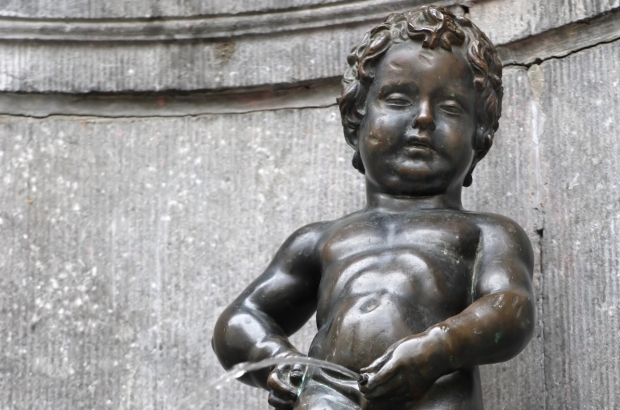- Daily & Weekly newsletters
- Buy & download The Bulletin
- Comment on our articles
Manneken Pis stops urinating to raise awareness about incontinence
The Manneken Pis statue in Brussels was temporarily turned off in an initiative aimed at raising awareness about incontinence.
While one in three people of all ages is affected by incontinence or urinary problems, the average wait time before seeking medical help is six-and-a-half years, according to the organisers of World Continence Week.
Under the motto: "Never too late", PlasPraat vzw (Belgium) and Bekkenbodem4all (Netherlands) are trying to break the stigma surrounding the issue.
“Many people wait a long time out of shame, which means they miss out on help, isolate themselves and end up in social isolation,” said urologist Dr An-Sofie Goessaert (UZ Gent), chair of PlasPraat vzw, adding that there was a misconception that incontinence is simply a part of aging.
“The risks do increase with age, but that doesn’t mean that nothing can be done about it.”
Other forms of urinary problems can include an overactive bladder, where patients feel the urge to urinate very suddenly and have to rush to the toilet.
“When people start avoiding their daily activities for fear of accidents, there is clearly a problem that needs to be addressed,” Goessaert said.
“In the majority of patients, we can control the problem fairly easily with pelvic floor physiotherapy, nerve stimulation or medication. Additionally, there are more specialised techniques such as Botox injections or implantable nerve stimulators. We can often control the problem well so that people can resume their lives.”
To provide better support to patients, the ‘Patient Decision Aid’ for an overactive bladder was recently developed.
“Thanks to this decision aid, patients can go through all the information discussed during the consultation at home,” said Goessaert.
“This means they are even better informed, can ask more specific questions and we can choose the treatment that suits them best together.”
Prevention is also important, Goessaert added, and many people do not know what constitutes healthy drinking and urination habits.
“During the day, we should drink 1.5 to two litres between breakfast and dinner,” she said.
“People who need to urinate frequently at night should drink less in the evening. Toilet behaviour also plays a role: sitting quietly on the toilet, urinating without pushing, and preferably urinating while sitting — even for men — helps to optimally support the pelvic floor and allow the bladder to empty smoothly.”
Goessaert said that continence issues were not limited to adults: children also sometimes develop bad habits, partly due to poor hygiene in school toilets and insufficient opportunities to drink.
“If children drink or urinate too little during the day, this can lead to problems later on,” said Goessaert.
The Never Too Late campaign also aims to draw attention to public toilets.
“More public toilets would help a lot of people,” said Goessaert.
“It's not a cure, but it makes their lives a lot easier and prevents social isolation.”



















